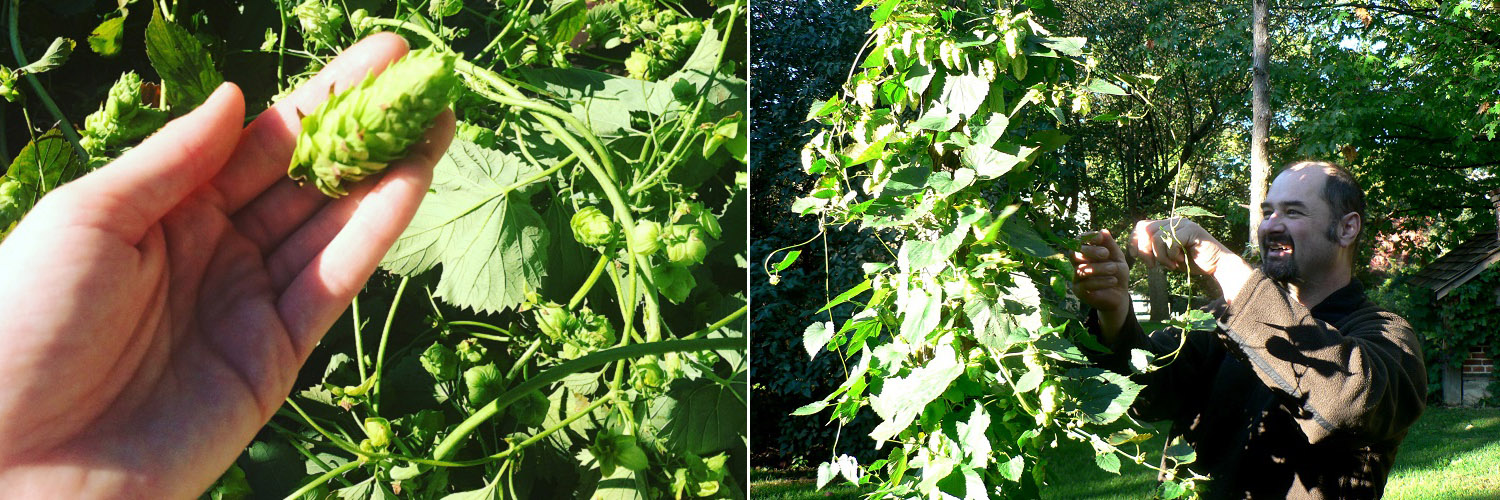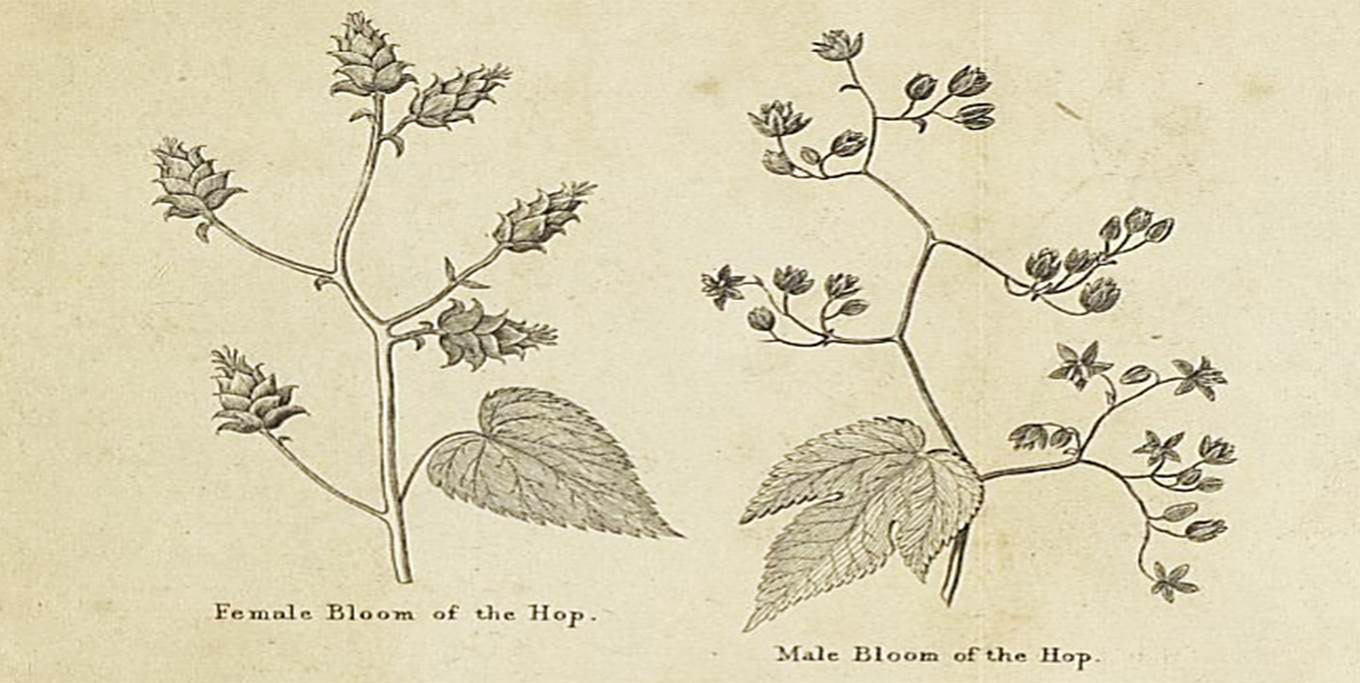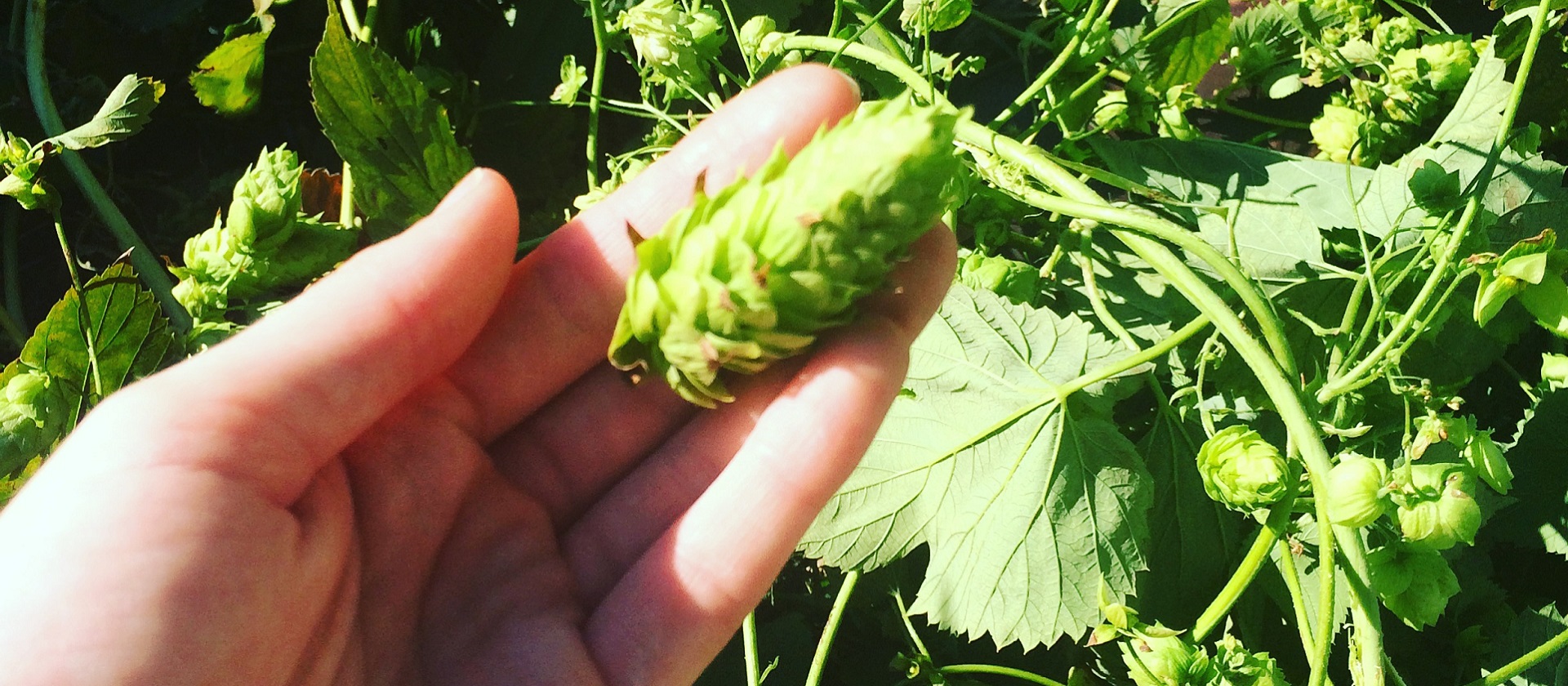From The Black Creek Brewery blog:
It’s mid-September, which means our hops have just passed their peak season. The ripening of our hop flowers is an annual sign that summer is ending, and Black Creek brewmaster Ed Koren’s Wet-Hop Ale is just around the corner. Of course, we mostly know hops for their role in flavouring and preserving beer, but Victorians had many other uses for this feisty little plant!

To start, Victorians often wrote about hops’ soporific qualities; many remedy compilations suggest stuffing one’s pillow with hops as a sleep aid. According to The Family Physician (1865), hops are especially useful when “…for any reason the use of opium is considered objectionable.” (The Family Physician, p. 829). All of the calming benefits, none of the narcotic drawbacks! (I bet it smelled pretty strong, though.)
The New Family Herbal goes a step further. If you really want a good night’s sleep, it suggests a teaspoonful of a tincture of hops…made from “six or seven ounces of Hops in two pints of proof spirits” (The New Family Herbal, p. 139). I’m not sure the hops were entirely responsible for any drowsiness!
But this particular manual lists many more uses for hops: in addition to helping you sleep and making beer taste great, apparently taking powdered hop seed could destroy worms. Hops heated in a flannel bag were touted as a cure for toothache. They also claimed that decoctions of hops cured ulcers, cleansed the blood (thus healing scabs, ringworms, and other ailments), eased jaundice, and even “…destroy[ed] the heat of the liver and stomach” (ibid).
Not to be outdone, The Hop Farmer: or, a Complete Account of Hop Culture (1838) adds animals to the species reaping hops’ benefits. In addition to using hops to cure rheumatism, this book suggests using decoctions of hops to strengthen cattle against severe weather!

This all sounds great, but what does 21st-century science say on the matter?
No clinical studies have been done to evaluate hops’ medical benefits. That said, it looks like hops do help with insomnia, anxiety, tension, and irritability. There is also some evidence that they can help with indigestion and poor appetite. And of course, hops’ bitter acids have some antimicrobial qualities – that’s why they preserve beer!
So the next time you drink a hoppy IPA – or try one of the many fine Wet Hop Ales coming out from Ontario craft breweries – you know hops aren’t all bitterness and acid. Well – biologically, they are. But metaphorically, they’re a little sweet as well.
–Katie Bryski


